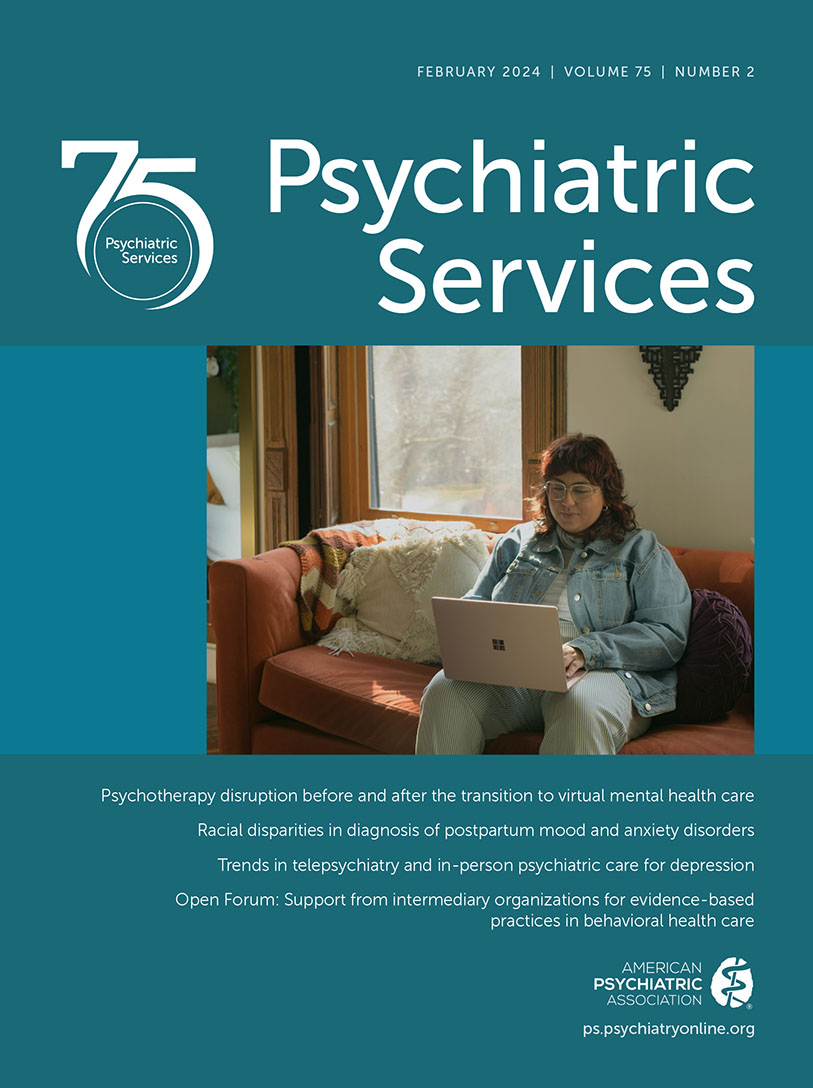Psychotherapy Disruption Before and After the Transition to Virtual Mental Health Care Induced by the COVID-19 Pandemic
Abstract
Objective:
This study aimed to examine population-level disruption in psychotherapy before and after the rapid shift to virtual mental health care induced by the onset of the COVID-19 pandemic in the United States.
Methods:
This retrospective study used electronic health record and insurance claims data from three U.S. health systems. The sample included 110,089 patients with mental health conditions who were members of the health systems’ affiliated health plans and attended at least two psychotherapy visits from June 14, 2019, through December 15, 2020. Data were subdivided into two 9-month periods (before vs. after COVID-19 onset, defined in this study as March 14, 2020). Psychotherapy visits were measured via health records and categorized as in person or virtual. Disruption was defined as a gap of >45 days between visits.
Results:
Visits in the preonset period were almost exclusively in person (97%), whereas over half of visits in the postonset period were virtual (52%). Approximately 35% of psychotherapy visits were followed by a disruption in the preonset period, compared with 18% in the postonset period. Disruption continued to be less common (adjusted OR=0.45) during the postonset period after adjustment for visit, mental health, and sociodemographic factors. The magnitude of the difference in disruption between periods was homogeneous across sociodemographic characteristics but heterogeneous across psychiatric diagnoses.
Conclusions:
This study found fewer population-level disruptions in psychotherapy receipt after rapid transition to virtual mental health care following COVID-19 onset. These data support the continued availability of virtual psychotherapy.



